My career in 24 games
You know what is the worst situation to be in? It’s not being surrounded by nasty, mischievous people. I mean, it’s not great, but at least you can shout and fight back. No, being surrounded by good people with the best intentions, whose good rights hole you down in a messy, uncomfortable position - THAT’S much worse.
Case in point: one of the most common requests about this blog is that I add a portfolio.
It's very suspicious you never mention the games you worked on! I can understand the secrecy for new projects, but after they have been published? Very odd!
And it makes perfect sense, after all, what have I done to be here pontificating all day about game localization? (Well, that specific question would actually remain, but a portfolio would make it slightly less tragic)
On the other hand, I'm a freelancer, a goon for hire taken off the internets, and most clients simply don’t want me to share project titles - simple as that.Developers don’t want to see their multi-million franchises attached to someone they haven’t even chosen. Fair enough.Agencies have to stay in business and, like it or not, the sheer information that I did project X and I didn't suck at it is a business asset. Fair enough.
So here I am, surrounded by good smiling folks, and deep deep in trouble.
So, we could potentially have a “shock and awe” kind of portfolio - we churn at least 50 main titles each year, multiplied by four years of business, it’s sheer law of probability that we net some good ones.
Instead, I’m stuck with this:

Which is the list of games that have my name in the credits and thus can be mentioned without ruffling anyone’s feathers.
As most of them start to be kinda old, I must explain and contextualize them a bit, and thus I must write a personal post - something I am pretty uncomfortable about. So, here’s the deal: I will write this long post about my career, doing my best not to make it devastatingly boring, and then we move on and never mention it again. Deal? Deal.
PERSONAL BACKGROUND
My parents had a toy shop, and from the early days of Atari VCS down to the Super NES era, me and my brother played pretty much every title they sold. The shop even hosted the first videogame tournament in my city (Genova).
For my geek creds, I can say I used to cut out cheat codes from magazines and glue them on a massive notebook for future use. I liked how some of them allowed to peek “behind the scenes”.
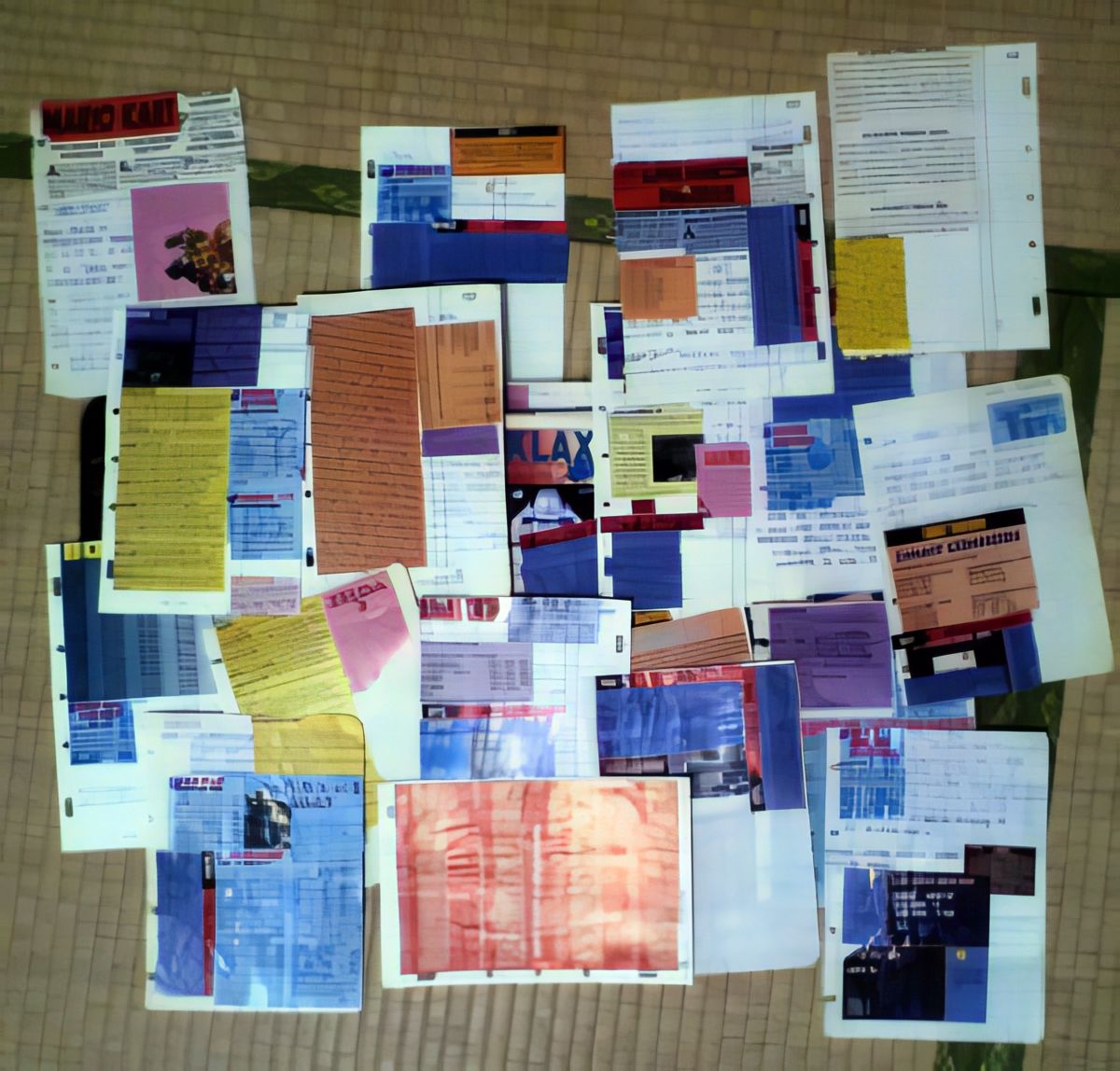
As for my studies, I have a Master degree in French and Spanish plus an ESOL Certificate of Proficiency in English and an IOL Diploma in translation. My final thesis was on the humor and language of the comic book “Astérix and Cleopatra”. (Which proved oddly useful for a JRPG adaptation a couple of years ago).
ROCKSTAR GAMES
I was hired by Take2 interactive/Rockstar Games in 2003. The entrance test required a review of a recent game and, as I came from three months of complete unemployment, I had no console nor cash. So I bought a new PS2 with Max Payne, played non-stop on a flatmate's TV, then returned the lot one week later just in time to get a refund.
Undeterred by my application letter (which ended with the embarrassing line “I want to go to the other side of the screen, I want to meet you”), they asked me to come for the interview. At the end of which my future boss asked me if I was really interested in the job, or if I was just trying to keep unemployment benefits.
But I didn’t sound like Spud, I swear
State of Emergency PC (2003), Global Star Software Inc.

This was my first real project for the company, which at the time still went by the hip name of "Take 2 Interactive Europe Quality Assurance office" and was located in the brownest office the East Midlands town of Lincoln could offer, haunted by the ghost of the game developer Tarantula studio, shut down in the very same premises.
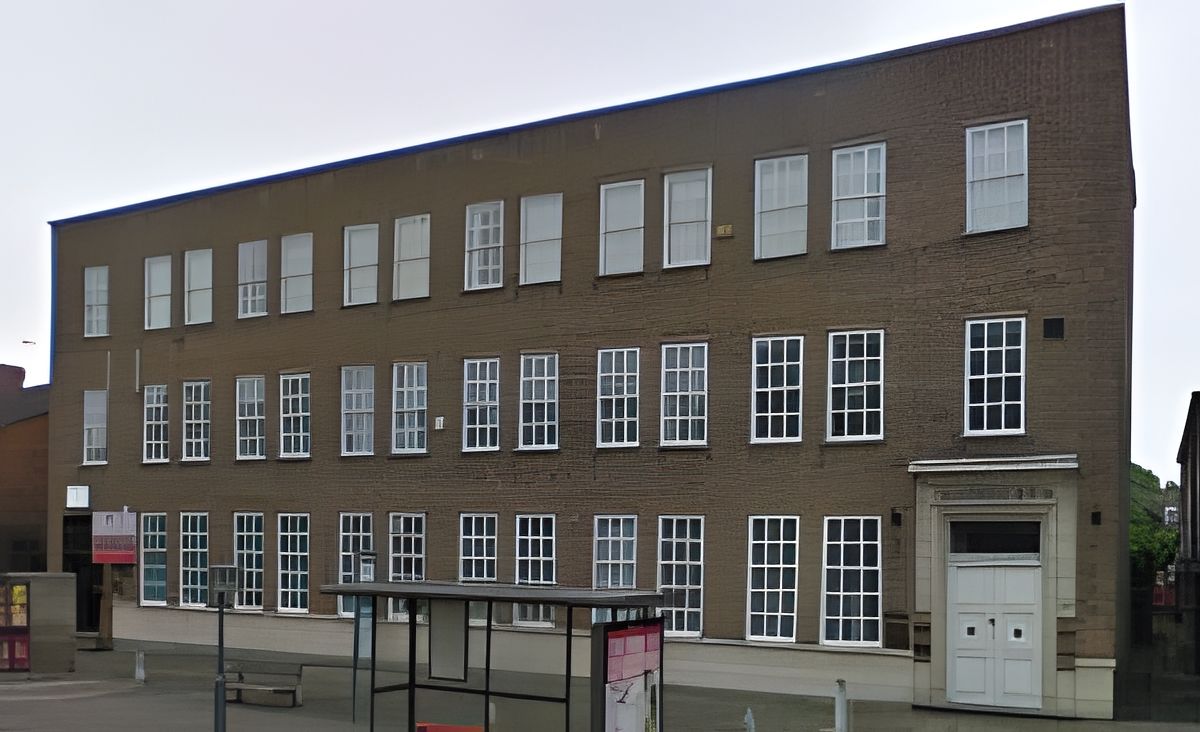

There I joined the rest of the localization staff: one (1) Frenchman by the name of Antoine Cabrol. For most of the first year he reviewed all the French and German games, while I took all the Italian and Spanish ones.
Our main tasks were proofing the translations coming from agencies (usually Babel or Synthesis for Italian) and then checking them again inside the game (mostly for spacing or context issues).
The level of freedom changed with time (and faith in our actions). Initially, we had none. Text files were edited by the developers only, and all changes had to be confirmed by the original translators.
This taught me two precious lessons about editing:
- You cannot change something just because you would like it differently. If you can’t explain objectively (and convincingly) why something is wrong, it’s a good sign it should stay as it is.
- Editors cannot make mistakes, as this negates their very purpose.
And I learned that the hard way: when the translators reviewed my very first list of edits, they found about 25 typos... Ouch! As the British version of Word came with no Italian spell-checker, I ended up hacking in the relevant DLLs taken from home.
Space Colony (2003), Gathering of Developers

Firefly projects were strange. For most of the time you tested the demo and then, as soon as the demo was published, all the missions suddenly appeared in the testing build and you had to check them all in a couple of weeks!
For testing this, I had a spreadsheet with all characters/items/levels of the game and tested each single combination, which led to one of my favorite bugs: when you sent the two punk girls Hoshi and Kia to the shrink robot, they would stay there forever and starve to death. Talk about problematic cases!
Nice project though, also thanks to the producer Sajjad Majid inviting us all in London for an end of project dinner!
Rockstar Games Double Pack: Grand Theft Auto (2003), Rockstar Games, Inc.

When Rockstar published Vice City, it had no Italian localization staff yet, but at least its translator came over a couple of weeks for a quick check.
But when GTA III came out before it, strings from the external agency (who had never seen the game) were simply added as is. So, when GTA III and Vice City were re-published on Xbox, I was tasked with reviewing both the Italian and Spanish versions of GTA III. Antoine did French and German finally had its own full time specialist: Chris Welsh.
Localization wise, I remember fixing mostly missed idioms, like a “greaseballs” wonderfully translated word per word in Spanish (“bolas de grasa”), just like Antoine had several instances of cat (as in “bloke”) translated literally (as in “cat”). In any case, at the time we were still required to open a detailed bug for every single edit and wait for the developers to fix it, so I had to limit myself to major issues and focus on play-testing. Actually, it’s the work project I enjoyed more as an actual game.
Drakengard (2003), Square Enix Co., Ltd.

Why Square-Enix chose not to publish this and flipped it to Take 2 instead? Because it was barking mad! Implied incest, giant flying babies, child soldiers to be killed in order to get a special sword... The list goes on and on...
Localization wise, we were quite excited to work with Square’s famed translators. Unfortunately we never received a text file with English and Italian side by side, which led to some mistakes to be found only when it was too late to fix them (in particular, I remember some very odd stuff in weapon descriptions).
Max Payne 2: The Fall of Max Payne (2003), Rockstar Games, Inc

The whole office was quite excited to work on this, after all it was the first new Rockstar title in a while (and the sequel to the very title I did my first test on!)
Localization wise, there were two main problems.
The translator really enjoyed using the semicolon (;) but the font didn’t display it at all - forcing a lot of strings to be rewritten.
Also, the story was narrated through a virtual comic book, and the game split words at the end of the line automatically, without following any grammar rules. If any programmer is reading this, please ensure that your font supports all standard characters, and never ever allow software to modify words. Never. Ever. Please.
Interestingly, the first couple of sentences of the Italian dub had a very strong hard-boiled tone, which vanishes pretty soon. I wonder how the game would have come up if they kept it throughout.
As the office still had no Spanish specialist, I was still doing double duty as a Spanish tester too, which led to some very long days...
Manhunt (2004), Rockstar Games, Inc.

First announced by the press as “Rockstar Games’ survival horror”, it was a surprisingly subversive title. Like Wikipedia says:
The game's story follows a supposedly executed death row inmate who is forced to participate in a series of snuff films for former film producer and now underground snuff director, Lionel Starkweather.
This meant that players were forced to kill enemies in the most gruesome ways in order to appease the director.
As they would gradually become more and more skilled in such killings, they would actually start to enjoy executing them, finally leading to a disturbing realization: the real monster in this game is you, the player, dipping in primeval violence as soon as soon you were given the (virtual) chance.
At least, this is what would happen in normal conditions, playing a couple of hours, once in a while. We worked on it the full day, plus overtime, for months. We didn’t dip in primeval violence, we drowned into it!
My personal situation was even worse as I was still doing double duty for Italian and Spanish, which meant that I was assigned two play-testers. One would play the whole Italian version with me on the side to check all the translations, while the other would videotape Spanish. As soon as Italian hit the end screen, I would take the Spanish tape and start over...
One of those evenings I went to my favorite pub and the neon lights suddenly broke: for a split second I thought there might be a killer behind me!
In the meantime, the staff had grown considerably. This meant the welcome end of my Spanish testing duties, but also moving to a new building, in a business park far far away from pretty much everything. As far as I know they are still there.
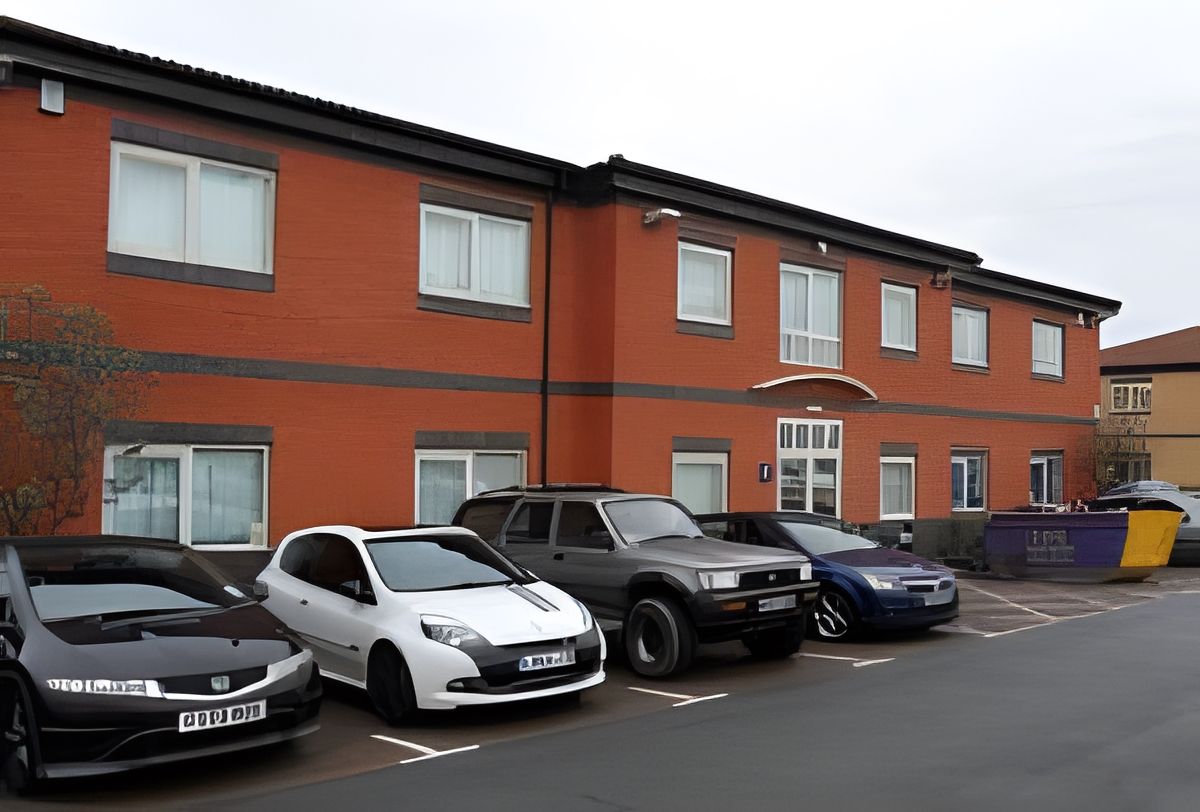
Mafia (2004), Gathering of Developers

Similarly to what happened later with Vietcong 2, this was a port of a previous PC game and thus most of the localization was already recorded and couldn’t be changed.
Luckily, the Italian version was quite good, despite its huge size. A feat that probably cemented the relationship between Take 2 and Synthesis for the coming years.
Wings of War (2004), Gathering

A budget arcade shooter set in the first world war. I remember it for two main reasons.
The first one was the Italian translator complimenting us for the quality of the proof. Apparently one year of having each single edit vetted by translators was bearing fruits!
The second was being joined by an Italian colleague: Stefano Moretti, a former Sony tester who moved over with the main motivation of getting into game design.
A motivation that became immediately clear in this project. For balancing purposes, we were tasked with playing the title through, noting down our scores for each stage and eventually providing some feedback.
It quickly turned into a grind, recording numbers for numbers’ sake, when our boss suggested a more proactive approach. Stefano went in full overdrive with ideas, and soon the ”suggestions” column massively outgrew those with the scores.
We sent it to the developer... and were thoroughly scolded! “Where are the scores?!” they wrote “All the other forms are perfect, but this one is awful. It sticks out like a sore ass!” Ouch!
Vietcong: Purple Haze (2004), Gathering

A very strange project. In retrospect, I think that there were no major language projects and the management tried to use the localization team mostly as normal testers. Not much to do on the language front anyway, as most of the dialogues were already recorded and could not be changed.
At least the producers were very kind, making custom beer bottles with the game title and the caption “Made with the blood, sweat and tears of...” followed by all our names. And I still have the god-awful promotional t-shirt!
Grand Theft Auto Advance (2004), Rockstar Games, Inc.

I loved GTA:GBA! Quite surprisingly, we didn’t use some arcane and madly expensive proprietary hardware for testing but... a freeware PC emulator (Visual Boy, I think)!
This meant that I could start a level, quicksave, try any sort of mad stuff and then quickload back. Which led to one of my favorite bugs of all times: continuously spray-painting your car slowly ate the memory of the game. Bit by bit, everything on the map would start to disappear: pedestrians, cars, buildings... Finally, you ended up floating in the middle of nowhere, until the whole game crashed with a black screen.
Not much to mention translation wise, but we had our moment of glory when we sent the game for approval by the notoriously picky Nintendo offices: first time pass, not a single issue found!
Red Dead Revolver (2004), Rockstar Games, Inc.

A special project, both on the testing and localization side.Testing was complex due to the adventurous history of the title. Red Dead was a canceled Capcom game, which Rockstar took over and reinvented when they bought its developer (Angel Studios) and turned it into Rockstar San Diego.
This led to some oddly empty locations (especially the towns, which I guess played a much larger role in the original design) and some understandably unpolished code (in the early builds you could even plug a light gun in the console and trigger an half finished shooting mode!)
As this made development rather complex, halfway through the project we were asked to step up for localization. We still had to record each edit as a bug and revise it in the following version but, for the first time, we were handed the source files and requested to implement all the changes ourselves.
This made the process much smoother and, most importantly, was a strong sign of confidence in our work. So, despite it being a pretty straightforward translation, I remember Red Dead pretty well for the sheer pressure of NOT MESSING UP THE CORE OF A TRIPLE A TITLE.
Outlaw Golf 2 (2004), Global Star Software Inc.

A surprisingly memorable title, for several reasons.
The first one was how complex the translation was. A translator once told me that the the work of famous authors is sometimes so rich and beautifully built to be a breeze to translate, while “simple” popular literature can be so reliant on a specific context and culture to be almost impossible to convey.
Alas, I can’t vouch for famous authors, but the sheer number of puns and references indeed made this one a real nightmare.
The second was system messages. While the developers made a great choice by allowing us to browse system messages with the press of a button, saving countless hours of testing, they made the terrible mistake of building them with stitching.
Vital messages like “Insufficient free space on memory card” or “No memory card inserted”, which have mandatory match-or-be-damned translations, were stored in chunks and built on the fly by slotting in the necessary bits. Which works well in English but is a complete nightmare for romance languages.
The third and last reason is a wonderful bug I found out. If players wrote %s or %d anywhere in the game, it would morph into a longish hexadecimal string like 536f206e6572647921 (%s and %d were the codes used to store variables in the game).So I decided to test it on the online rankings, naming myself %s%d%s%d%s%d%s%d... And it destroyed the layout of the rankings to the point that they had to ring Microsoft and get our (testing) data reset. Xbox live destroyed, achievement unlocked!
Grand Theft Auto: San Andreas (2005), Rockstar Games, Inc.

A huge project, that redefined everything.
First of all, it had to be tested 24/7. My Italian colleague Stefano Moretti and the other “junior” testers worked by day, while the senior staff was tasked with nights.We would start working at 9pm in the evening, have a briefing, stop in the middle of the night for “lunch”, then finish at 9am in the morning with a debriefing (often eating the leftover pizza, promoted to the rank of “breakfast pizza”).
For a whole summer, the office never locked its doors - and my friends in town started thinking I had returned to Italy for good. It wasn’t too bad, but it sure didn’t bring a relaxing atmosphere, or a good smell, for that matter.
Translation wise, we had to do a lot with very little.Almost every day we would receive a new version of the source text, with several changes and edits placed through more than 16 thousand lines.On the other hand, our work document was just a very long TXT file, with headers marked with square brackets!
Considerably concerned that deleting even one by mistake could potentially break everything, I started collecting versioning utilities online, which would end up being used by the whole office.
On a strictly linguistic level, the constant rewrites meant this is probably the Rockstar title I was most involved with as an “added translator”. One choice I am particularly proud of (although it required a lot of effort) is how we tried to keep subtitles short, a bit like in movies, as a response to players who complained struggling to read them while playing.
Testing-wise, we had to check each single string on screen, all 16 thousand of them. This means all the cut-scenes and all the system messages, but also all the different results of a dozen of different mini-games, down to the twenty or so random sentences a character tied on your bonnet would shout in that specific mission and so on...I’d say the most challenging part was keeping the necessary focus and discipline in the long term, as mistakes are always around the corner!
FireFly Studios' Stronghold 2 (2005), 2K Games, Inc.

Like Space Colony, this is a game that substantially went overnight from a tutorial and a couple of levels to a rich and complex campaign, to be tested very fast!
Translation wise, I remember it for the dubbing genius of Pietro Ubaldi whom, given a list of “medieval” multiplayer insults (marrano, gaglioffo, cicisbeo, etc), ran with it, creating some hilarious voice overs.
I also remember it for being the game that allowed my Italian colleague Stefano Moretti to (briefly) realize his dream. Using the in-game editor, he created a couple of levels and used them as a portfolio, landing a game design job at Gizmondo. Stefano passed away in a car accident in July 2006, I’ve been told his English years
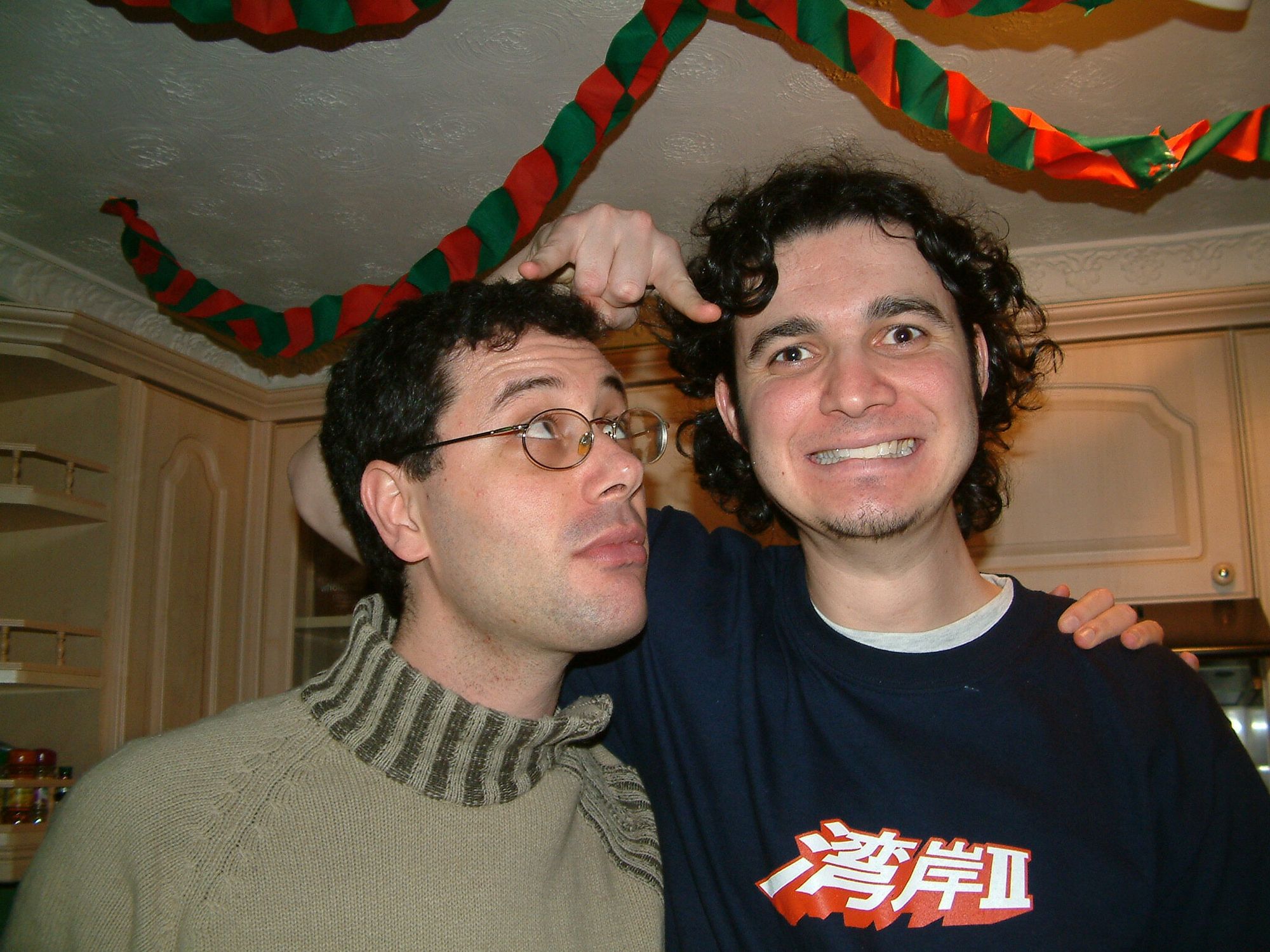
Back in Italy
I’m credited on a few other Take 2 / Rockstar titles, but either they contain very little text (Motocross Mania 3), or my involvement was minimal (Midnight Club 3: DUB Edition, Serious Sam II, Top Spin, Kohan II: Kings of War).
After about two years and a half of career, I had learned two main lessons.The first one is that localization is a war of attrition. Take too many risks or burn your energies too fast and you WILL make mistakes, which players will sneer at way more than they will ever appreciate your prowesses.The second one is that translation, far from being the end of localization, is just the beginning of a very delicate and complex process. Any effort a translator can make to ease it is probably more than welcome.
I moved back to Genova in 2005 and started working as a freelance translator, first for car maintenance manuals and later for video games. Suddenly I had a much larger role in localization and, thus, my name would disappear from anything I worked on (for the reasons detailed above)

Two Worlds (2007), TopWare Interactive GmbH

As the Italian publisher Newave Italia was searching for a translation team, fellow translator Francesca Pezzoli contacted me, Raffaella Brignardello and Mirella Soffio and offered our services through Marco “Cavaliere Ombra” Macciò.
Working directly for the publisher, we had the honor to appear in the credits... as co-authors of the manual (Italian taxation is much lighter for writers than for translators)!
I also remember this title for being invited to the official presentation (and being quite bemused by the questions of the press). Speaking of which, reviewers seemed to enjoy our work:
"(Two Worlds) remarkable localization and equally excellent interface offer playability at top-notch levels"Dialogues are still in English, but subtitled in an exemplary Italian. You will not miss the sketchy localization of other titles."Iniziopartita.it - Two Worlds
Valkyrie Profile 2: Silmeria (2006), Square Enix Co., Ltd.

Nintendo, Square and Blizzard are quite different from pretty much everyone else in terms of focus and procedures, even in the smallest details. Take 2 asked me a game review in order to apply, Square-Enix asked me this:
Creative writing assignmentTopic: You are a character from a Square Enix game who has been magically teleported to Japan. Write a short story about your adventures in this new land.
As Kotaku summarized it, “Want To Work For Square Enix? Write Fan-Fiction”! Anyway, I didn’t really need to make up much, as Drakengard obviously had one ending based around that very premise, in which you flew your dragon around Tokyo Tower and fireballed Migs (never, ever think too hard about Drakengard).
After passing the test and subsequent phone interview, I became the Italian translator for Valkyrie Profile 2: Silmeria through the Unicon Products agency.
As I worked from home, they actually went through the effort of mailing me a Brady Guide, a copy of the English game and one of those insanely expensive development PS2 to play it on. Too bad I received the lot only a couple of days before translation began!
Translation wise, I tried three little experiments.First of all, I kept subtitles short and movie-like, a bit like in GTA: San Andreas, although this time the aim was to make things more cinematic.Second, as an anonymous fan had ripped and posted all the cutscenes on Vimeo, I based most of my work on the actual footage.Finally, I tried to make the translation easier to implement by limiting stylistic elements that I knew would bog down testing without giving much to the title.
I also remember this game for a very odd bug: we had to ensure that each single item had a different translation because if even one name was shared, for example between an attack item and the equivalent magic, the game would remove it and misalign ALL the other strings!
Hopefully, we worked hard and were rewarded by some good reviews in the press:
"Valkyrie Profile 2 (...) comes fully translated in good Italian, dubbed in English but with an effective subtitling.""A masterpiece enhanced by a solid Italian translation." PlayStation Magazine - Valkyrie Profile: Silmeria
The Last Remnant (2008), Square Enix, Ltd.

The odd thing of being limited to the titles I am credited for is that I need to leave out some major projects and give prominence to companies like Square - which I only did two projects for.
But I can’t deny that The Last Remnant had a tidal impact on my life and career - something I’m pretty sure very few ever said about that forgotten title!
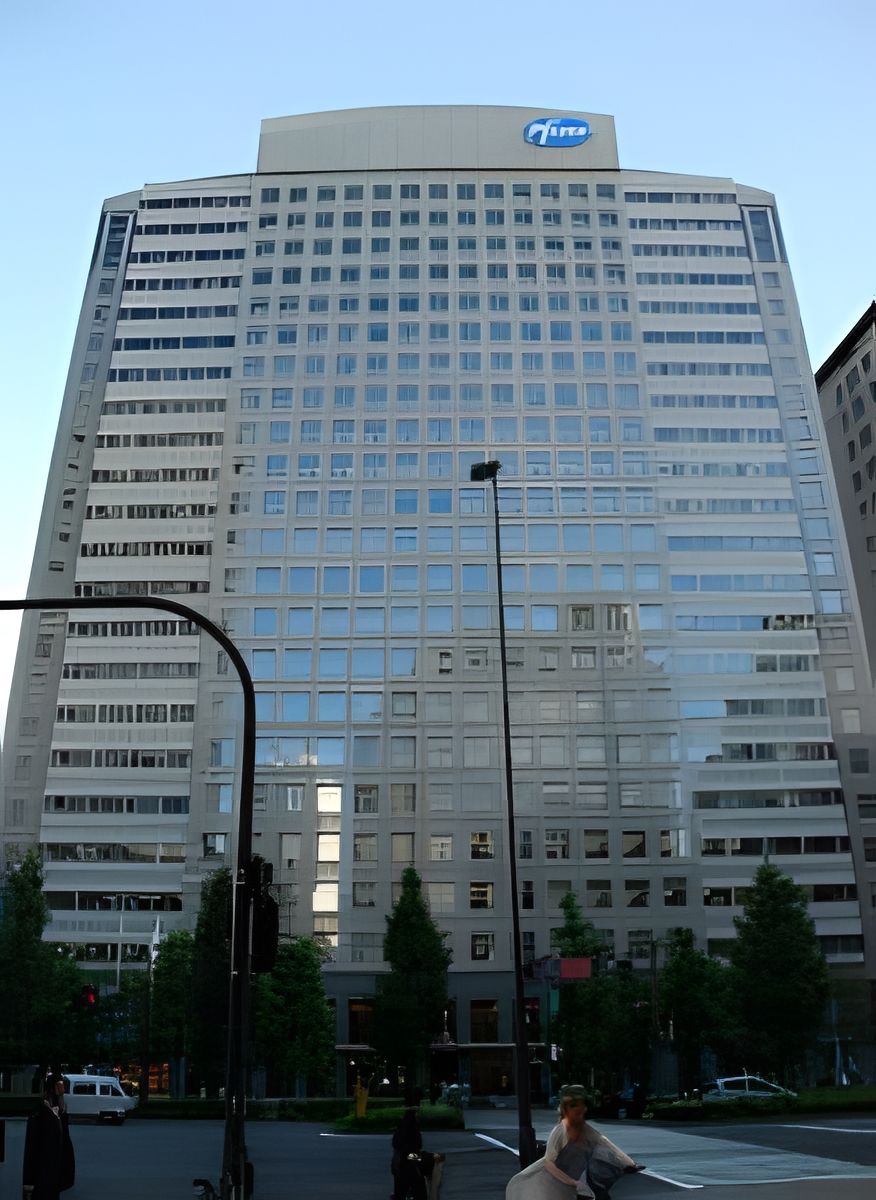
Working on this project was a real culture shock. First of all for being an in-house assignment, in Tokyo, for six months.
Second of all, for the complex dynamics of a company with hundreds and hundreds of employees, with wildly diverse backgrounds.
Finally, for Square’s unique localization style. Some things were brilliant and became part of my own process, like collecting huge amounts of reference before starting, some were a bit bizarre, like having a dozen of translators (none of which had any artistic background) providing feedback for the new system fonts.
In the end, I think we did a pretty decent job, which the press seemed to agree with.
"We agree with the decision of using the subtitles alone (which are, by the way, faultlessly made)"Everyeye.it - The Last Remnant
When the project finished, I stayed in Japan with whom would soon become my wife, working as a freelance from our small apartment in the north of Tokyo.

Street Fighter IV (2009), Capcom Co., Ltd.

Oddly enough, after about four years as a full time translator, I was offered this brief gig as a pure localization tester, in Osaka.
Back in the shoes of an humble tester, I didn’t have much say on style and wording, but I did my best to polish everything.
Still, I remember this project for two main reasons.The first one was receiving all the in-game strings printed each morning, like a phone book sized manual. Ever wondered why Japanese files often come on countless tabs with a complex layout? That’s probably why.The second reasons was finding a 100% crash bug on my second day of work. As I had to check all defeat sentences, I set the rules in order to be beaten in a matter of seconds. To my surprise, the game would crash if you did that many times in a row. I know, it's just a natural talent I have... (I mean for causing bugs, not for losing)
Naruto: The Broken Bond (2008), Ubisoft, Inc.

A very special project, as it was my last big title as a single translator, and it laid the foundations for team GLOC.
In a nutshell, I took the rich and detailed approach we used for Square’s translations and tried to streamline it until it would fit within the much smaller budget and timeframe of freelance jobs.
In the case of Naruto, my efforts went into three directions.The style guide was simplified and rationalized, so that it could be compiled in half a day using both direct and online resources.The core terminology was extracted on a statistical basis and carefully checked against the anime, as some reviewers critized some departures in the previous episode.Finally, the whole cycle was closed by an internal QA with Xbench, ensuring that style and terminology were applied consistently throughout the project.
Its was complex, as I was testing a brand new workflow while trying to give this huge franchise the translation it deserved, but I was very happy with the results.In a way, it’s the most personal translation I ever did, as it coupled the rigor of the “team” framework, with the clarity of a single voice (mine).
An opinion that seems to be shared by the critics, which gave some good reviews.
"The excellent Italian localization of screen texts allows those that don't know English to fully enjoy this title."Gamesurf.it - Naruto: The Broken Bond
Team GLOC
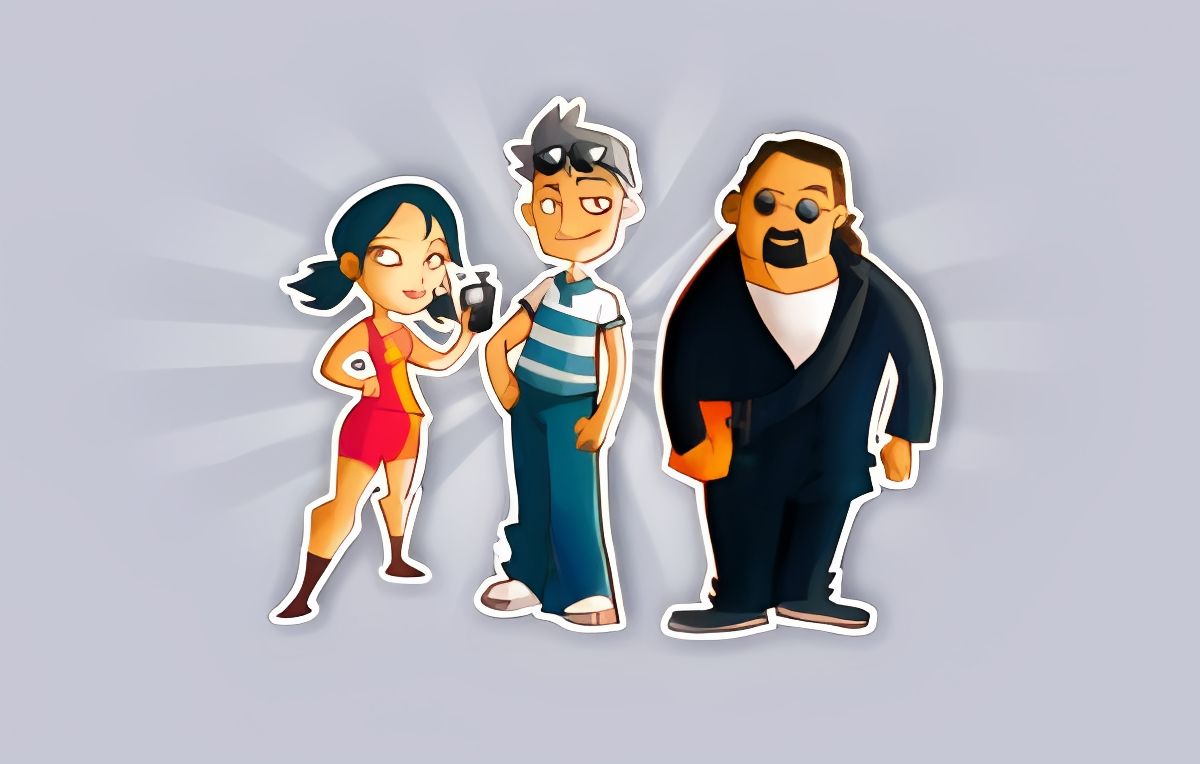
While working on Naruto I thought that the whole style guide/terminology extraction framework would have been ideal for working as a team, but I only took the plunge one year later, moved by three factors.
While games were getting bigger and bigger, deadlines seemed to get shorter and shorter. Like it or not, titles you could translate alone were a dying breed.Also, games started to come with lots of small ancillary texts for website, updates and DLC to be translated very fast, making my 8 hours time shift with Europe increasingly problematic.Finally, Lehman's crash led to a very slow 2008, so it was really time to try something new.
In January 2009 I joined forces with Antonio Vaccarino, which had been my project manager for Naruto, and Matteo Scarabelli, which I knew for reviewing his (pretty good!) entrance test for a client, and we embarked on our first team project... a shockingly awful budget game about astrology!
Still, the client was satisfied with our work and we started from there. About one year later Antonio left in order to work for Ubisoft and was replaced by Elisa Di Fiore, former editor at PlayStation 2 Magazine - leading to the current team.
The rest is recent history: in 2010 we were invited to present the mechanics of the team at Localization World with our "Joe Freelance VS the Mammoth Game Translation" speech , which also led to the creation of this blog - and our cartoon personas.
A couple of months ago Team GLOC entered its fourth year, celebrating more than 1,000,000 words translated each year with our own translation system “Louandu”.
And a couple of days ago I reached ten years of career, leading to this endless post. A big thank you to everyone and hear you again in 2023!